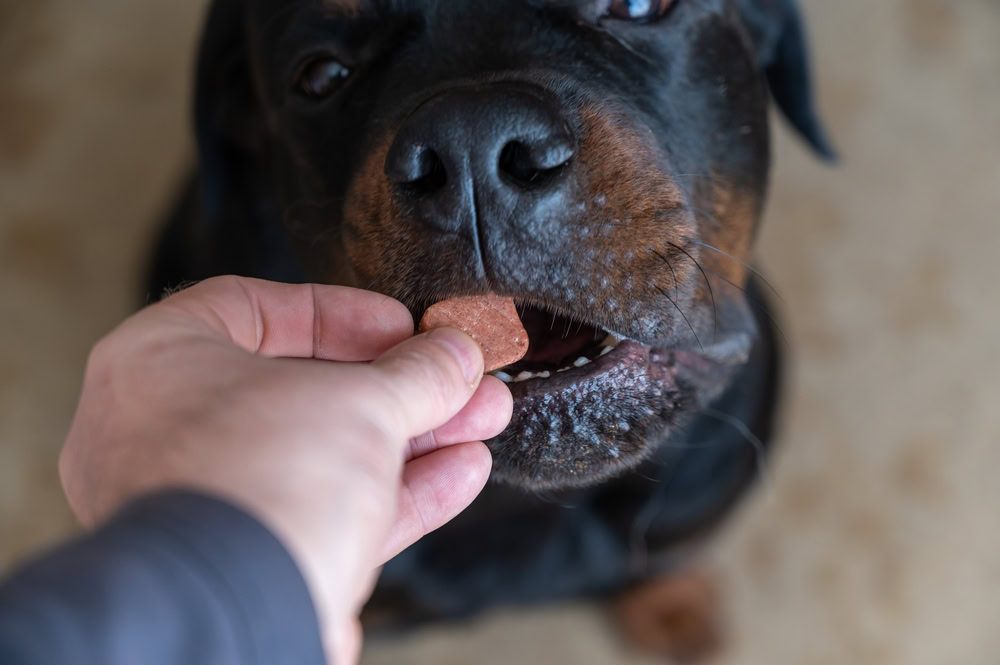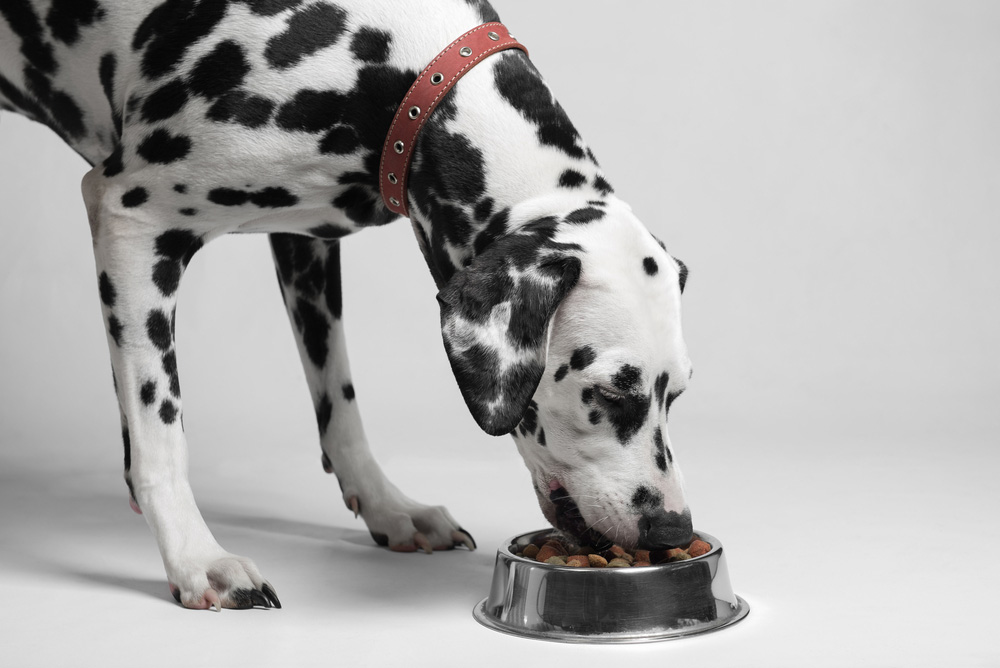
Taurine is often brought up when discussing heart health in cats, as they can develop a condition called dilated cardiomyopathy (DCM) when eating a diet low in taurine. But what role does taurine play in a dog’s body?
The whole taurine situation in canines can be confusing, so let’s examine this amino acid and how it works for dogs and hopefully, make this issue a bit clearer.

What Is Taurine for Dogs?
Taurine has more of a spotlight role for felines, but a canine’s need for it can be just as important. For starters, taurine is one of 22 amino acids that dogs use to build the various proteins that are needed throughout the body. Amino acids can be divided into essential and non-essential, with essential amino acids being the ones that dogs need to get from their food. They can produce non-essential ones on their own.
Taurine is considered a non-essential amino acid because canines can typically make their own if given the proper building blocks for it in their food. However, that’s not the case for every dog. Certain breeds seem to be predisposed to taurine deficiency and may require supplementation. These include:
Dogs that don’t have enough taurine can develop DCM, a condition where the muscular walls of the heart thin and stretch, decreasing the efficiency of pumping blood. Supplementing their meals with taurine can help improve the output of the heart in DCM and may play a role in treating heart disease not linked to taurine deficiency. Taurine also helps protect against retinal degeneration.1

How Is Taurine Given to Dogs?
Taurine can be found under the names Dyna-Taurine and Formula V and may be part of many cardiovascular health supplements. It comes in a liquid, powder, or pill form that is typically given twice daily. Of course, the exact dosage and frequency will depend on your dog and the condition that your vet is trying to treat.
Taurine supplements can be given with or without food but are usually easier to administer if mixed in with a tasty meal.
What If You Miss a Dose?
Missing a dose of your dog’s taurine supplement typically isn’t a big deal. Just give it as soon as you remember it and adjust the time frame accordingly, or if you’re close to giving the next dose, skip the missed dose and continue on your regular schedule. Avoid giving two doses at once or giving more than one dose within the allotted time frame. For example, if your dog takes taurine every 12 hours, don’t give more than one dose within those 12 hours.

Potential Side Effects of Taurine in Dogs
Since taurine is something that your dog makes normally or gets from their food, supplementation is generally well tolerated. However, some dogs may get a bit of digestive upset, especially if given the supplement on an empty stomach.
They may present with:
- Vomiting
- Diarrhea
- Stomach pain
It’s generally better when taurine is given with food.

Frequently Asked Questions
Do Dogs Really Need Taurine?
Most dogs will make the taurine that they need from the “building blocks” that they get from the meat in their diet. However, some breeds may be prone to taurine deficiency and will require supplementation. Studies show that supplementing taurine can also prevent other types of heart disease and retinal degeneration.
Can Too Much Taurine Hurt Dogs?
More research needs to be done, but it appears that toxicity to taurine is quite low, so your dog overdosing on it is unlikely. That said, speak to your veterinarian before offering it to your pet to make sure whatever issue they’re dealing with can be helped by giving them a taurine supplement.
How Do You Test for Taurine Deficiency in Dogs?
Taurine deficiency can be diagnosed with a blood test. This may require fasting your dog for a period of time before the blood draw, and the sample may need to be sent to an outside laboratory.

Conclusion
Supplementing with taurine is more commonly done in cats but can be necessary for dogs. Certain breeds are more prone to developing taurine-deficient dilated cardiomyopathy or other conditions that may require taurine supplementation. Your veterinarian will be able to advise you on the best product to use for your dog and how to offer it.
Featured Image Credit: Dmitriev Mikhail, Shutterstock

